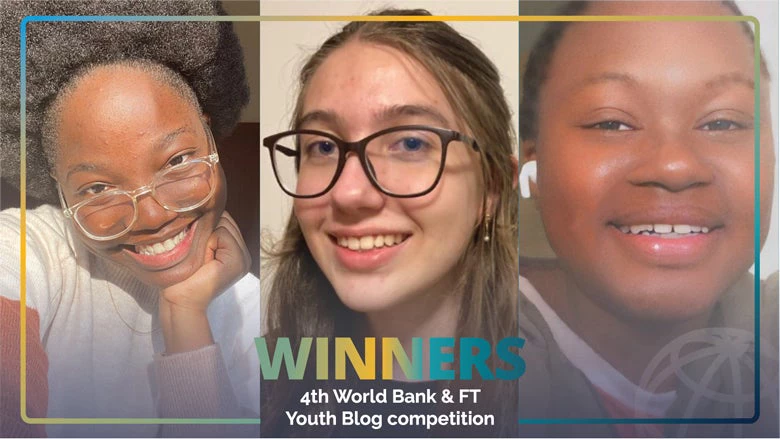
The World Bank and the Financial Times are announcing the winners of our fourth annual youth blog competition.
We asked high schoolers aged 16 to 19 from around the world to provide their insights on learning after two years of the global pandemic. They had up to 500 words in English, French, or Spanish to discuss this year’s topic:
What insights from your experience during the COVID-19 pandemic do you think would improve education and learning? What should educators and policymakers do differently, including by leveraging technology and changing teaching methods?
We received more than 500 entries from students in 104 countries around the world. They shared with us the diverse challenges and successes that they’ve experienced, and they offered many ideas on the future of education.
Our judging panel selected three winning entries from the many strong blogs that students submitted. The winners are Jamie Mirembe Catalina Namayanja from Uganda, Vimbai Zisengwe from Zimbabwe, and Isabela Melara Cavassin from Brazil.
Some common themes emerged across the entries we received. Most students felt there is no substitute for the face-to-face interaction that schools provide, although many also recounted some successes with at-home learning. Collectively they urged educators and policy makers to think carefully about these different modes and how they might best fit together, whether in future crises or as a new approach to education. Many students suggested that more flexibility should be a feature of education going forward.
Students advocated greater focus on the ways the pandemic has affected young people’s mental health. They expressed renewed appreciation for the social aspects of learning, which digital technologies have not been able to replicate. Some also suggested novel ways to support students’ social interaction when schools are forced to close.
Numerous entries highlighted the digital divide: across many countries, internet access remains limited or poor quality. This means that digital learning has been impossible, or at best extremely difficult, in many of the communities affected by school closures around the world.
Among the winning entries, Jamie sketches the many obstacles to distance learning that a young woman faces in her community in Uganda. Vimbai offers the ingredients of successful learning in Zimbabwe, with a focus on upgrading technology and teacher pay. Isabela describes some award-winning new approaches that Brazil has taken to implement virtual classrooms.


Join the Conversation